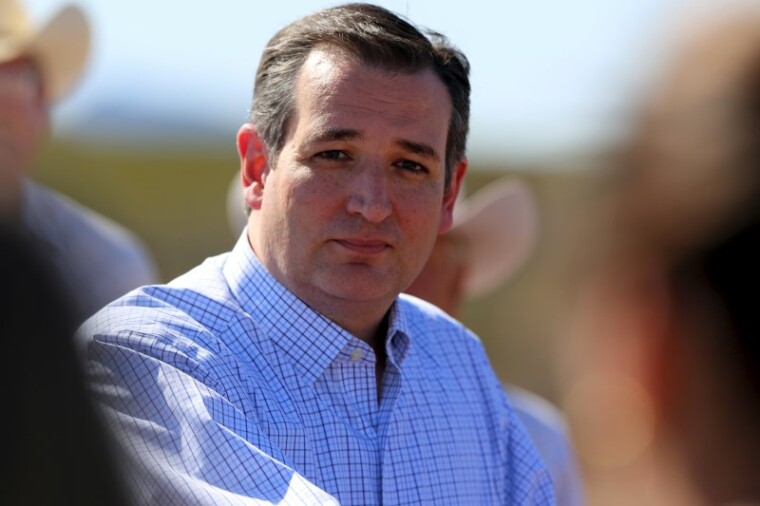Cruz gets Jeb Bush support, clings to hope after Utah win

WASHINGTON (Reuters) - U.S. presidential candidate Ted Cruz on Wednesday clung to hopes of catching up on Republican front-runner Donald Trump after winning the Utah caucuses and receiving further backing from the party establishment which is desperate to stop the outspoken billionaire.
Often shunned by party moderates because of his hawkish stance on fiscal issues, Cruz picked up an endorsement from former Florida Governor Jeb Bush, an establishment Republican who was a candidate for the party's nomination for the Nov. 8 presidential election until he dropped out last month.
Cruz, a conservative U.S. senator from Texas, looked on track to win all of the 40 Republican delegates from Tuesday's Utah contest, although Trump won the 58 delegates up for grabs in Arizona, partly due to his tough message on illegal immigration.
"What we're seeing all across the country is the momentum is with us," Cruz told CNN. "You want to talk about a broad coalition, ideologically diverse - that covers the entire spectrum of the Republican Party."
But time is running out to defeat Trump before the Republican convention in July. After Tuesday, the former reality TV star had 738 of the 1,237 delegates needed to win the nomination, according to The New York Times. Cruz had 463.
Trump easily defeated Cruz and Ohio Governor John Kasich in Arizona with a hardline anti-immigration message and tough talk on Islamic militants.
"Hopefully the Republican Party can come together and have a big WIN in November, paving the way for many great Supreme Court Justices!" Trump wrote on Twitter.
Tuesday's nominating contests were overshadowed by attacks in Brussels in which at least 30 people were killed. The attacks raised security concerns among U.S. voters.
On the Democratic side, front-runner Hillary Clinton routed challenger Bernie Sanders in Arizona to stretch her advantage in the race for her party's presidential nomination. But Sanders' wins in Utah and Idaho bolstered his case that he still has a chance despite Clinton's big lead.
LEADERSHIP
Former Secretary of State Clinton seized on the attacks to argue that neither Trump nor Cruz can be trusted to lead the fight against Islamic State militants.
Trump has called for a temporary ban on Muslims entering the United States and Cruz said he would send police patrols into Muslim neighbourhoods in the United States.
"This is a time for America to lead, not cower," Clinton told supporters in Seattle in a victory speech.
Trump's immigration stance appeared to cement his win in Arizona, where he had the backing of Maricopa County Sheriff Joe Arpaio, one of the most prominent supporters of a crackdown on illegal immigrants.
In Utah, Cruz appeared to benefit from Mormons who dominate the state's Republican vote and rejected Trump's attacks on Mitt Romney, a Mormon and the 2012 Republican presidential nominee.
The political arm of Club for Growth, one of Washington's most influential conservative advocacy groups that has pledged to target Trump, also on Wednesday officially endorsed Cruz, citing "a vast gulf" between the two candidates.
The Trump-Cruz feud spilled on to social media in a spat drawing in the candidates' wives.
Make America Awesome, an anti-Trump political group, featured a scantily clad photo of Trump's wife Melania, a former model, in an ad. Trump hit back on Twitter, saying "Be careful, Lyin' Ted, or I will spill the beans on your wife!"
Cruz on Wednesday said he considered the tweet a threat and said Trump was "a bully." Asked about the ad, he told NBC: "It's not something I would have done."
Separately, Sanders said his Utah and Idaho victories were powered by young people and working-class Americans and show he can "win major victories in the coming contests."
The U.S. senator from Vermont is looking for wins in many of the six Democratic contests this week. Alaska, Hawaii and Washington will vote on Saturday. Clinton will keep adding to her delegate total even if she is not the winner in a given state because Democratic delegates are awarded proportionally in all states.
(Additional reporting by Susan Heavey; Editing by Alistair Bell)